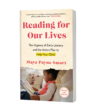Demon words. Oddballs. Rule breakers. The terms used to describe words—like indict and villain—whose spellings don’t match their pronunciations tend to veer negative. It’s as if the words broke with some established order and wreaked havoc on the language, fueled by their own rudeness or irreverence.
In fact, words are just words. Language itself is messy, though, full of complexity wrought by natural evolution and intentional intervention over time, place, and population. No authority makes English orderly or sets its spellings and pronunciations in stone, though many have tried.
English is as dynamic as the 1.5 billion-and-counting people who speak it. The language is inflected with the diverse accents, history, and vocabulary of those people, teachers, communities, and cultures. Old English was forged through conflict. The germanic tribes who invaded early Britain would recognize a number of words and word roots in today’s English. But the English of native speakers today, from Australia to Zimbabwe, would dazzle them with its breadth and variety.
So what’s the use in villainizing words as many parents, teachers, authors, and spelling programs do? Why characterize letters as misbehaving adversaries? Instead, why not treat them as intriguing—as tantalizing windows into a storied past?
And, on the flip side, what if we expected unexpected spellings? What if approaching spellings as rich, complex expressions of words’ pronunciations, meanings, and history was our default?
I think our teaching would improve with our appreciation for spelling’s nuances. If we stopped labeling spellings strange or evil, we might approach them with curiosity and eagerness to learn, versus disrespect or dismissal. We might bring our knowledge of word origin, history, meaning, and structure to spelling. We might access our familiarity with letter patterns and frequencies. We might bring a repertoire of skills and perspectives to the rich, deep subject. And our children, rather than inferring that these words are something to resent or even fear as too difficult, might absorb our positivity.
As parents our job is to teach the language, not judge it. So, I say, skip the negative labels. Focus on giving your child reliable strategies for learning the spellings they’ve struggled with.
Personally, I’ve shifted to calling hard-to-spell words quirky, instead of tricky. Quirky feels a little more positive. Like unusual, but in a good, endearing way. Still, my perspective and teaching might be even better served if I went all the way and thought of, and taught, unexpected spellings as gifts—special and distinctive.
What have you called or heard others call words that are difficult to spell? Do you think it matters? Are some terms better or worse to use when introducing the words to children? What would you call them?



